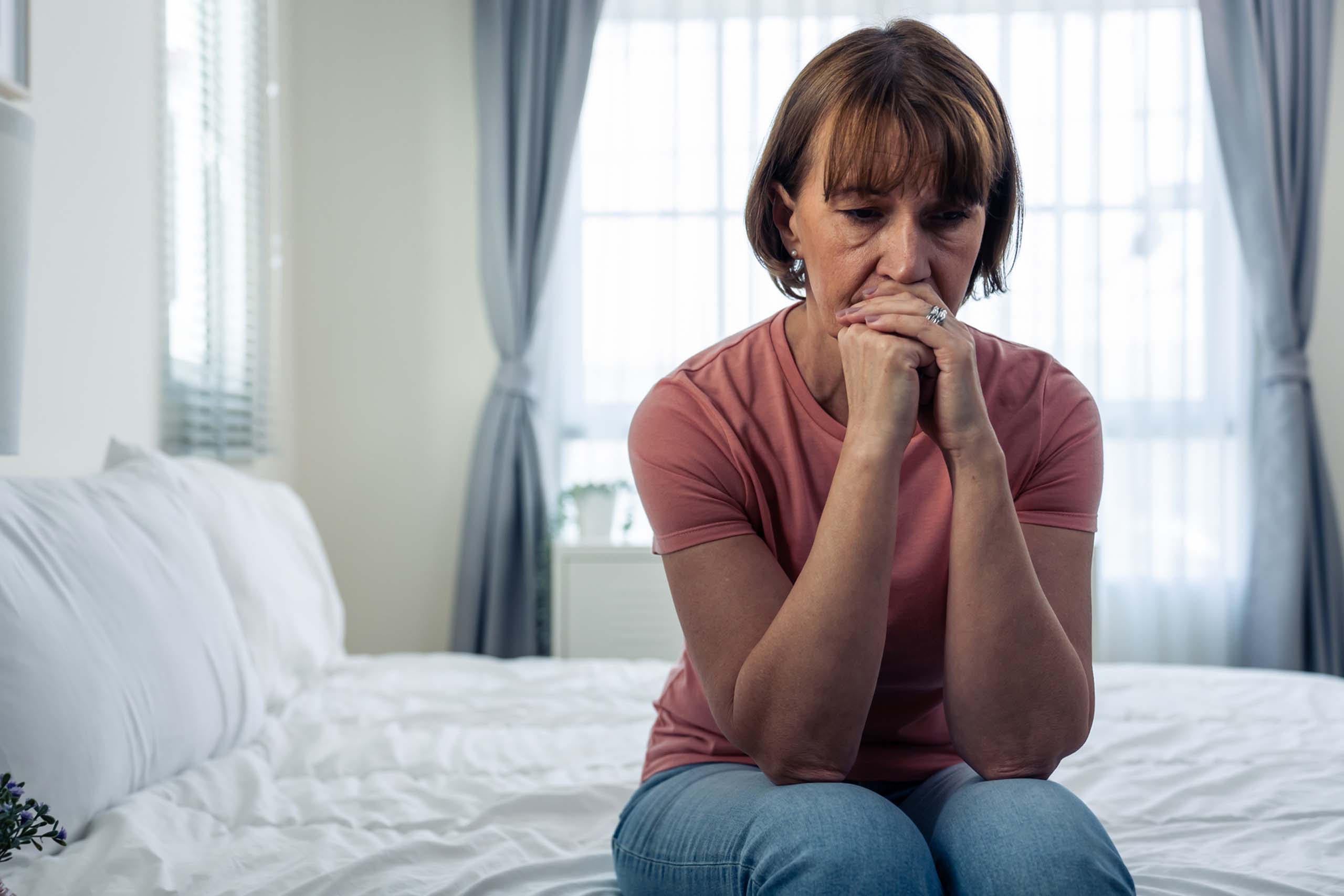Did you know that women have testosterone, too? It’s NOT JUST a male hormone!
This lesser-known vital hormone plays a significant role in women’s health, influencing everything from their energy levels to their passion for life.
But here’s the catch – when testosterone levels dip, it might start subtly, making it tricky to spot at first.
But HOLD ON!
Low testosterone in women might pave the way for more frustrating conditions if left unmanaged. So, DON’T let it go unnoticed; learn how to deal with it.

From Fatigue to Frustration: Coping With Low Testosterone in Women
What Does Low Testosterone in Women Mean?
The importance of testosterone in women is often overlooked and misunderstood. Commonly regarded as a “male sex hormone,” many believe it doesn’t exist or play a significant role in the female body.
In reality, testosterone is present in BOTH MEN AND WOMEN. Low testosterone in women can have severe consequences, just as it does in men.
Female testosterone deficiency can impact various aspects of life, including:
- Cognitive performance
- Musculoskeletal health
- Cardiovascular endurance
- Sexual desire and satisfaction
Cognitively, low testosterone levels may lead to decreased focus, mental fatigue, and difficulty with memory. Women experiencing this hormonal imbalance may find it challenging to perform tasks that require concentration and attention.
Regarding musculoskeletal health, testosterone is critical in maintaining muscle mass and bone density. When levels are low, women might experience muscle weakness and an increased risk of osteoporosis, leading to fractures and mobility issues.
Cardiovascular endurance can also be affected by low testosterone in women. Testosterone helps improve red blood cell production and oxygen-carrying capacity, so its deficiency may result in reduced stamina and exercise tolerance.
Still, the most significant impact is sexual desire and satisfaction. Testosterone is a driver of libido in women. Low levels can lead to a diminished interest in sexual activity, decreased arousal, and difficulty achieving orgasm, negatively affecting relationships.

What Causes Low Testosterone in Women?
Low testosterone in women can have various causes, including lesser-known factors that can significantly impact hormone levels.
One of these causes is using certain medications, like oral contraceptives or corticosteroids. Prolonged use of these medications can suppress testosterone production. In the case of contraceptives, the side effects may be noticeable after several months of continuous use.
Women who undergo oophorectomy to treat or reduce their ovarian cancer risk may experience low testosterone levels as a consequence. The ovaries play a crucial role in hormone production, and their removal can disrupt the hormonal balance.
Some medical conditions can also contribute to diminished testosterone levels in women, albeit less commonly. Conditions like adrenal insufficiency and pituitary disorders can interfere with the hormonal pathways, leading to reduced testosterone production.
An inevitable cause of low testosterone in women is aging. Like estrogen, testosterone production declines as women age. From their first period to menopause, testosterone levels may have decreased by half by the time women reach their 40s.

Symptoms of Low Testosterone in Women
- Decreased libido (low sex drive)
- Fatigue and decreased energy levels
- Mood changes, including irritability and mood swings
- Difficulty concentrating and mental fog
- Muscle weakness or loss of muscle mass
- Reduced bone density and increased risk of osteoporosis
- Weight gain or difficulty losing weight
- Hot flashes or night sweats
- Vaginal dryness and discomfort during intercourse
- Changes in the menstrual cycle, such as irregular periods or cessation of periods
- Hair loss or thinning
- Changes in skin, such as dryness or thinning
- Insomnia or disturbances in sleep patterns
- Changes in cholesterol levels that lead to increased cardiovascular risks
Note: Experiencing one or more of these symptoms DOES NOT necessarily indicate low testosterone levels, as they can also be associated with other medical conditions. If you suspect low testosterone, seek medical advice for proper evaluation and diagnosis.
How Is Low Testosterone In Women Diagnosed?
Diagnosing low testosterone in women can be challenging due to its symptoms overlapping with other conditions like hypothyroidism or adrenal insufficiency.
Healthcare providers rely on blood tests to measure the amount of testosterone in the patient’s blood to identify a deficiency. However, during menopause, fluctuating hormone levels can make it difficult to pinpoint an apparent deficiency.
The normal range of testosterone in women is 15 to 70 ng/dL, but where you fall within this range may vary depending on your age and overall health. Therefore, healthcare professionals also consider individual factors while interpreting the results.
Since the symptoms of low testosterone are not unique to this condition, thorough evaluation and consideration of medical history are essential for an accurate diagnosis.
A TIMELY and PRECISE diagnosis is crucial to offer appropriate treatment and alleviate the adverse effects of low testosterone on a woman’s overall well-being.
Low Testosterone in Women Treatment
Testosterone replacement therapy (TRT) is a highly effective and safe treatment for women with low testosterone levels, helping to alleviate symptoms and improve overall well-being. Research studies support TRT as the first-line treatment for low testosterone in women.
Different types of testosterone are available, including injections, patches, gels, and pellets. The choice of administration route depends on the patient’s preferences, lifestyle, and medical considerations. So, how do you know which type is the best for you?
Injections offer a long-lasting effect, while patches and gels allow for convenient daily application. Pellets, or subcutaneous implantation, are implanted under the skin, providing a steady release of testosterone over several months.
The Lancet Diabetes and Endocrinology found that testosterone therapy significantly improved sexual function, mood, and overall quality of life in postmenopausal women. Another study reported that testosterone therapy effectively improved sexual desire and arousal in women with diminished sexual well-being.
TRT for women is prescribed in much lower doses than for men, minimizing the risk of adverse effects. The Endocrine Society and other medical organizations have recognized the use of TRT for women when administered under medical supervision.
Bottom Line
Identifying low testosterone in women is more than crucial. If experiencing symptoms of low testosterone, women should seek medical advice. Testosterone replacement therapy can help restore hormone balance and improve your quality of life.
Yunique Medical provides FUNCTIONAL MEDICINE for optimized health and performance. We offer customized, scientifically advanced treatments to create a new state of human thriving. Why be ordinary when you can be optimal?
HUMAN 2.0 begins here!
Contact us to schedule your FREE consultation at one of our three locations in Florida – Ocala, Fruitland Park (The Villages), and Daytona.
Up Next:

